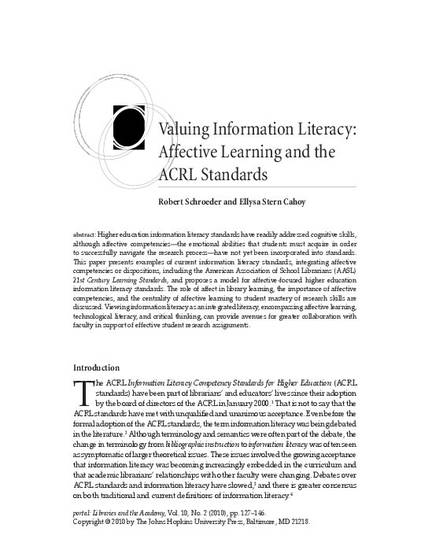
- Critical thinking,
- Information literacy
Higher education information literacy standards have readily addressed cognitive skills, although affective competencies--the emotional abilities that students must acquire in order to successfully navigate the research process--have not yet been incorporated into standards. This paper presents examples of current information literacy standards, integrating affective competencies or dispositions, including the American Association of School Librarians (AASL) "21st Century Learning Standards," and proposes a model for affective-focused higher education information literacy standards. The role of affect in library learning, the importance of affective competencies, and the centrality of affective learning to student mastery of research skills are discussed. Viewing information literacy as an integrated literacy, encompassing affective learning, technological literacy, and critical thinking, can provide avenues for greater collaboration with faculty in support of effective student research assignments.
Copyright © 2010 The Johns Hopkins University Press.

This article first appeared in PORTAL: LIBRARIES AND THE ACADEMY, Vol 10, Issue 2, April, 2010, pages 127-146.